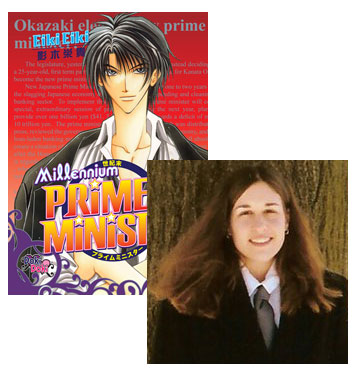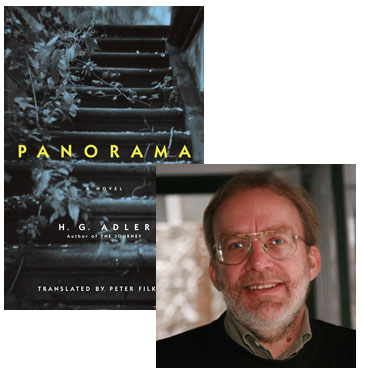Danica Davidson on Adapting Manga for English Readers

One of the advantages of participating in social networks like Twitter and Facebook is that it puts me in touch with Beatrice readers from lots of different backgrounds, at various stages in their writing careers. I “met” Danica Davidson through Facebook a while back, and when she told me about a recent essay she’d written for another website, which I ended up linking to on the Beatrice Facebook page, we got to talking about something she could do here—I’d known for a while that she had worked in manga, and I’d always been interested in hearing about what it’s like to work on those books, so here we are! (And, by the way, happy birthday to the author!)
Writing is just part of what I do. My main goal is to be a professional novelist (I’ve been interviewed by the Los Angeles Times and featured on the Guide to Literary Agents website about this) and I’ve completed more than one novel. While I work toward this goal, I pay the bills and build my readership as a freelance writer. I’ve written a few hundred articles for more than thirty magazines, newspapers and websites, but the freelance gig that tends to interest people the most would have to be my involvement in the manga translation process.
Manga are Japanese graphic novels and they’ve given me quite a bit of freelance work, as I’ve written about them for such places as Booklist, Comic Book Resources, Graphic Novel Reporter and Publishers Weekly, to name a few. But I’ve also been part of the behind-the-scenes work in the manga world: I’ve written the English adaptation.
It occurred to me that it would be a fun and significant job I could do, so I wrote to manga publishing companies, inquiring. I already knew people from most the companies and they were familiar with my reviews. Digital Manga Publishing, one of the main manga companies in America, gave me a “test,” having me work on some sample pages. I passed and was hired as a freelance adaptor.
29 January 2011 | in translation |
Peter Filkins on Taking In H.G. Adler’s Panorama

I started reading H.G. Adler’s Panorama over the long weekend, and I’m still early in, but I’m blown away by the way that Peter Filkins has rendered Adler’s flowing narrative voice, details tumbling one after the other as filtered through the perspective of a young child, not quite as poetic and pointillist as the early pages of Portrait of the Artist as a Young Man but setting down into words a similar sense of wonder. (I know enough to know that the boy will grow up, and his experiences will become much less wonderful, but that foreknowledge isn’t stopping me from being captivated by each page I see now.) Here, Filkins talks about the challenges of rendering into English not just the words Adler wrote, but the consciousness with which he infused them.
The phrase “lost in translation†usually refers to what fails to be carried over from the original to the target language. However, in taking on the novels of H.G. Adler, I have often felt lost to and utterly consumed by the subtlety of Adler’s prose and the uncanny way that the consciousness of the author remains always at one remove from the narration itself, and yet present in every sentence. This was most obvious when I translated the Holocaust phantasm of Adler’s novel The Journey, for there the multiplicity of anonymous voices obliquely tied to the oppressors and their victims served as the woven fabric of Adler’s own present sensibility amid the prose. In Panorama, this at first seemed less obviously so, for as a species of Bildungsroman it uses an omniscient third-person narrator to render the more straightforward development and life of Josef Kramer, the book’s protagonist.
But like that other Josef K. of further renown, Josef Kramer remains a kind of cipher through which passes the people and places that he initially witnesses, and that eventually define him. The more Josef Kramer experiences and observes, the more the consciousness at work within him grows through its ability to absorb experience, survive it, and relive it through memory. Because Josef is a survivor, it is his memory that narrates Panorama, though at the start the reader is not overtly made aware of this. As the novel proceeds and Josef grows from child to schoolboy living in post-World War I Bohemia, then to university student to young man witnessing the cataclysm that drags him through the horrors of Auschwitz, Buchenwald, and Langenstein, the reader begins to understand that it is Josef who is narrating the story of Josef, himself “aware of no break between yesterday and today.†Indeed, as an exile in England at the book’s close, Josef realizes “the past is so transparent in its intrusion that it no longer relates to any so-called ‘I’ or ‘you’, nor is Josef sure any longer whether he is someone who has acted or is a witness or a victim, or whether he is all of these together….â€
18 January 2011 | in translation |

 Our Endless and Proper Work is my new book with Belt Publishing about starting (and sticking to) a productive writing practice.
Our Endless and Proper Work is my new book with Belt Publishing about starting (and sticking to) a productive writing practice. 
